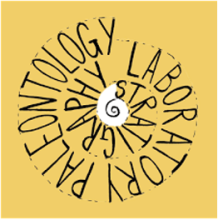
 uni-jena.de
uni-jena.de
Logistics
Date: 18-22 March 2024
Location: Patras, Greece
Venue: University of Patras
Official Organizer: FS*IRGO - Society of Friends Förderverein für die International Research Group on Ostracoda e. V.
Description
ESO offers a comprehensive overview on ostracodology, covering taxonomy, (palaeo)ecology, biodiversity, and applied biostratigraphy. Designed for young scientists, the focus includes systematics, biostratigraphic applications, ecology, and life history.
The course spans the Paleozoic to Holocene, with practical training and case studies enriching the learning experience.
Overview
The European School on Ostracoda (ESO) course is designed to offer a comprehensive understanding of ostracod taxonomy, (palaeo)ecology, biodiversity, geological history, and applied biostratigraphy.
It caters to the interests of young scientists and industrial professionals engaged in micropalaeontology, palaeoceanography, palaeoclimatology, biology, and environmental applications.
The emphasis will be on exploring the methods and principles of ostracodology, encompassing systematics, biostratigraphic applications, ecology, and life history.
The course will delve into the fossil record of ostracods from the Paleozoic to the Holocene, spanning contemporary fauna as well. Notably, the program will include case studies from both marine and continental systems, along with hands-on training in identification, preparation, documentation, and analysis.
Key Speakers
Dr Marie-Béatrice Forel, Muséum national d’Histoire naturelle, Paris
Prof. Dr. Peter Frenzel, Geosciences, University of Jena
Dr. Björn Holstein, DEA AG, Wietze
PD Dr. Renate Matzke-Karasz, Earth- and Env. Sciences, LMU München
Prof. Dr. Steffen Mischke, Earth Sciences, University of Iceland
Dr. Anna Pint, Geography, University of Cologne
M.Sc. Olga Schmitz (Gildeeva), Geosciences, University of Jena
Dr Theodora Tsourou, Geology and Geoenvironment, University of Athens
Dr. Anton Waltschew, retired micropaleontologist, Nuremberg
Program
Monday, 18 March – General Fields [P. Frenzel, R. Matzke-Karasz & T. Tsourou]
09:00-09:45 Introduction
09:45-10:30 Bauplan, systematics, morphology pt. 1
10:30-11:00 Break
11:00-11:45 Morphology pt. 2, ontogeny
11:45-12:30 Taxonomy
12:30-13:30 Lunch
13:30-14:30 Documentation and collections
14:30-15:30 Distribution and ecology15:30-16:00 Break
16:00-17:30 Ostracoda of the Aegean Sea
Tuesday, 19 March – Living Ostracoda [R. Matzke-Karasz & P. Frenzel]
Group 1
08:00-12:00 Ostracod sampling
12:00-13:00 Lunch
13:00-14:00 Soft parts
14:00-15:00 Exercises in soft part analysis pt. 1
15:00-15:30 Break
15:30-17:00 Exercises in soft part analysis pt. 2
Group 2
08:00-09:00 Soft parts
09:00-10:00 Exercises in soft part analysis pt. 1
10:00-10:30 Break
10:30-12:00 Exercises in soft part analysis pt. 2
12:00-13:00 Lunch
13:00-17:00 Ostracod sampling
17:00-17:30 Free topics
Wednesday, 20 March – Quantitative Analysis and Applications [P. Frenzel & O. Schmitz]
09:00-09:30 Data handling
09:30-10:00 Multivariate statistics
10:00-10:30 Break
10:30-12:30 Introduction to Quaternary palaeoenvironmental analysis
12:30-13:30 Lunch
13:30-14:15 Transfer functions
14:15-15:00 Applications in geoarchaeology
15:00-15:30 Break
15:30-16:15 Applications in water quality studies
16:15-17:30 Case studies
Thursday, 21 March – Pre-Quaternary Ostracoda [M.-B. Forel & A. Waltschew]
09:00-10:30 Palaeozoic Ostracoda pt. 1
10:30-11:00 Break
11:00-12:30 Palaeozoic Ostracoda pt. 2
12:30-13:30 Lunch
13:30-15:00 Mesozoic Ostracoda pt. 1
15:00-15:15 Break
15:15-16:45 Mesozoic Ostracoda pt. 2
16:45-17:30 Free topics
from 19:00 social evening
Friday, 22 March – Industrial Micropalaeontology [B. Holstein & Steffen Mischke]
09:00-10:30 History and methods of industrial micropalaeontology
10:30-10:45 Break
10:45-11:30 Exercise: Applied biostratigraphy
11:30-12:30 Lunch
12:30-13:30 Stable isotopes and trace elements
13:30-13:45 Break
13:45-15:45 Geoarchaeology
15:45-16:30 Discussion & conclusions
17:00-17:45 Public lecture
Registration
Registration is OPEN as of December 2023.
Fees (include course material, lectures & lunches):
150 € for students
300 € for Universities/Government
1500 € for participants from private industry/company
To register, please send an email including your name, address, and career status to the ESO-organizers: eso uni-jena.de (eso[at]uni-jena[dot]de). The places will be filled on a first-come, first-serve basis.
uni-jena.de (eso[at]uni-jena[dot]de). The places will be filled on a first-come, first-serve basis.
Payment : If your registration was successful, you will will be asked to pay your admission fee either by bank transfer or by using PayPal. For any payment, please include as payment purpose: “ESO 2024, participation fee for NAME, and CAREER STATUS (student, PostDoc, employee in private industry)”
Cancellation and no show: By payment you accept our cancellation and no-show policy. We are not able to reimburse any paid fees, however course material will be made available.
Financial Assistance
The European School on Ostracoda is an acknowledged course by the Micropalaeontological Society (TMS), London, UK. We are very proud that TMS provides one or two student stipends of up to 500£ for the participation in ESO9 (2024).
Furthermore, PAGES (Past Global Changes) provides travel support for early-career researchers and/or researchers from low- and middle-income countries. Please, contact the organizers if you think you are eligible for this grant and would like to apply for it.
Sustainability
All European participants are strongly advised to travel to the workshop venue by land only (by train or bus). In addition, the organizers have asked the conference venue, who is providing the meals over the workshop, to use mainly plant-based locally and biologically produced ingredients.
Further Information
For more information, please visit the event's website: https://www.support-irgo.net/eso/
PAGES is committed to an open and welcoming environment for all and does not tolerate any sort of discrimination or harassment during workshops. If you feel uncomfortable during the workshop, please contact:
Diego Volosky: diegovolosky gmail.com and/or;
gmail.com and/or;
Olga Schmitz (Gildeeva): olga.gildeeva uni-jena.de (olga[dot]gildeeva[at]uni-jena[dot]de)
uni-jena.de (olga[dot]gildeeva[at]uni-jena[dot]de)
|
Thumbnail
|
Thumbnail

|
Thumbnail

|
Thumbnail

|